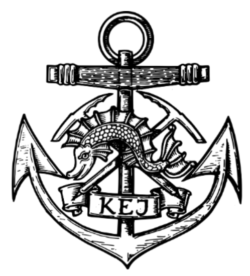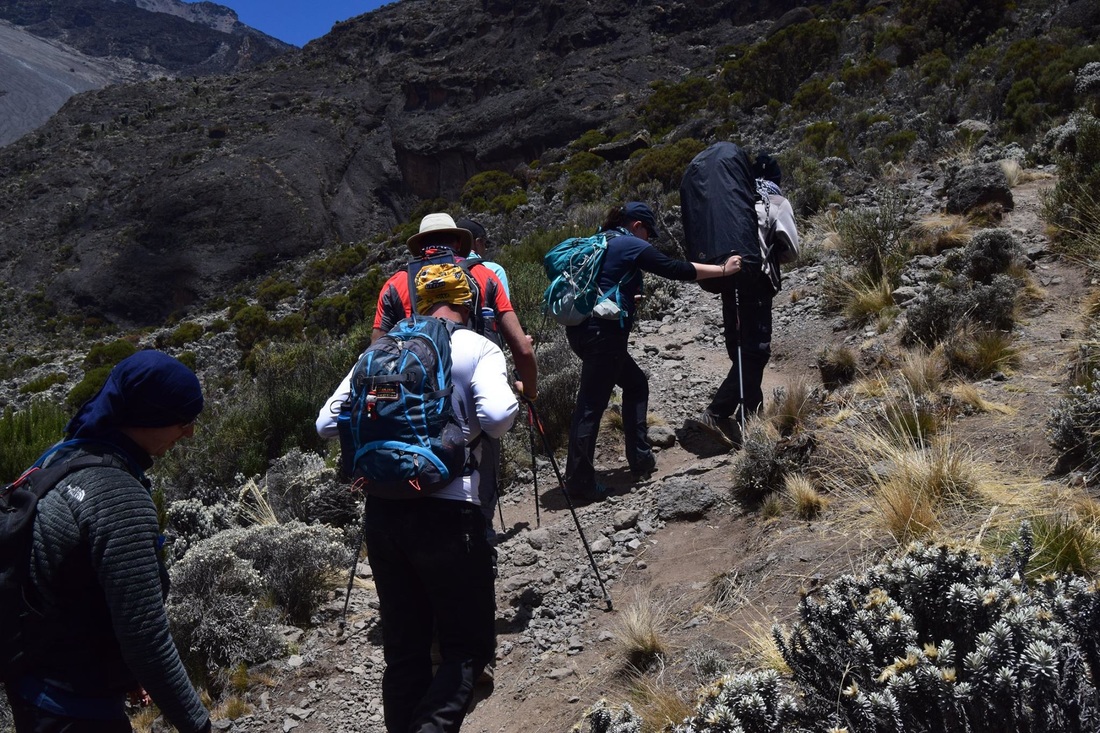Climbing Kilimanjaro teaches you a lot of things about
A) Climbing a mountain and
B) Yourself.
I’m sat here this evening thinking about all of the aspects I’d not considered, and things I’ve taken away with me from the experience.
So many aspects of the climb can also apply to every day life, whether you’re climbing a mountain or not!

1. It’s not a race
Did you ever hear Aesop’s Fable about the tortoise and the hare?
So, you know that slow and steady wins the race!
Whilst Kilimanjaro is not a race, the same applies.
PolePole (slowly) is a word you will hear multiple times a day throughout your climb, and with good reason. You will think you can walk faster, you probably can, but it is a long hike and endurance is key. Don’t compare your pace with others, and don’t feel bad for walking slowly. In actual fact, the slower you walk, the easier it is for your body to acclimatise to altitude. Trust the pace your guides are setting for you.
They know what they’re doing, they do this week in week out.

2. Your guides are omniscient
As I said above, they know what they are doing. They take groups up the mountain multiple times a month and so any arrogance in thinking you know better than them is entirely misplaced. They undertake a lot of training to reach this point in their career and if there’s something they don’t know about the mountain, or altitude sickness, I would be surprised.
If they tell you to walk polepole, then do it.
If they tell you that you’re too unwell to continue, then listen to them.
There are horror stories about people who hid their symptoms, or didn’t tell their guides that they felt unwell, and they ended up severely ill, and in some cases died from it. (Yes, it does happen)
As our guide said, “the mountain will always be there, it’s a mountain. You as a human will not be.”
You may be disappointed that you’ve not reached the summit, but it’s not worth risking serious injury, illness or even death.

3. You will need a lot of toilet breaks…
The average human body is 50-65% water, and staying hydrated is key. Not least because the first couple of days are hot hot hot, but also because drinking water will help in getting rid of any altitude headaches and your body will thank you for it!
You need to drink around 4-5 litres a day up the mountain, and Diamox (used for altitude sickness) is a diuretic, so you’ll need to find a good rock, ladies!
There are toilets at each camp though!
4. Breathe
Breathe.
Inhale… exhale…
In through your nose, out through your mouth etc…
You’re tired, your legs are burning from climbing, your back is aching.
Breathe.
5. You can do it…
There will be times you think you can’t continue, there will be times that you’re physically or mentally broken. For me this was at around 0400 on summit night. It was dark, my knee was painful, My hands were freezing cold and I had no idea how much further it was to the summit. All I could see was my guides feet with my headtorch and string of lights zig-zagging their way up the slopes.
Your feet will always keep going, your legs will always keep going. Your muscles probably ache and you’re struggling to take a full breath because of the altitude, but you can do it.
Leave your comfort zone.
Just keep going.

6. You will be exhausted
You’ve done it, you’ve reached the summit. Well done…
Now you have to descend. Adrenaline may have helped you reach the top, but the walk back down is the tiring part.
When you get down off the mountain and you’re back in your hotel, you will sleep like a baby.
7. Tip your Guides and Porters!
They have carried your bags, they’ve motivated you to keep going, they’ve prepared your meals every day, set up your tent and they’ve helped you achieve your dream.
The salaries they get aren’t huge, and so tipping (which is the done thing) is very much appreciated. I tipped $400 which was all I could afford, but I know some tipped a lot less. For me, personally, I was happy to give what I could, because I know that they rely on these. If you can afford to fly to Tanzania and pay to climb a mountain, you can afford to tip the people who got you there.
Without them, you’d not have reached the summit.
Remember that.

8. Perspective
9. Appreciate how beautiful the mountain is
At points, I was so focused on putting one foot in front of the other and trying not to stack it, that I forgot to look around. When I realised that was what I was doing, I made sure that I took in everything I could, and realised how stunning Kilimanjaro truly is.
A lot of the climb is so barren. Endless alpine desert and lava rocks, but it was just beautiful.

10. Celebrate your achievement
I’ll stop harping on about Kilimanjaro one day…
Probably when I’m sat in my retirement home drinking gin.
I was so proud to reach the summit, so thankful to my guides and porters for getting me there, and learnt a lot about myself in the process. Things I thought were difficult in my everyday life are really not, at all. The perspective gained from the climb has changed me outlook on my career path, my life, my interests and I now have a new, very expensive hobby.

